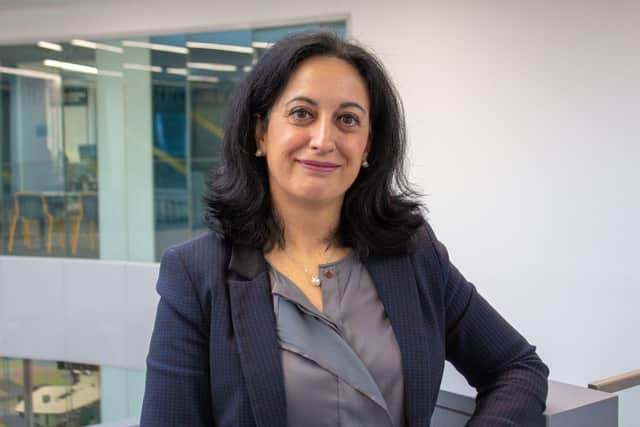Industrial Decarbonisation Research and Innovation Centre, based at Edinburgh's Heriot-Watt, nets £1m to help industry transition to net zero
A pioneering facility based at Edinburgh’s Heriot-Watt University has secured a £1 million funding boost to continue its efforts catalysing industrial decarbonisation in the UK, helping it “pave the way for a cleaner, greener future”.
The UK’s Industrial Decarbonisation Research and Innovation Centre (Idric) has been awarded the sum by the Engineering and Physical Sciences Research Council (EPSRC), which is backed by UK Research and Innovation, a non-departmental public body sponsored by the UK’s Department for Science, Innovation and Technology,
Advertisement
Hide AdAdvertisement
Hide AdThe funding is expected to allow Idric to maintain momentum and maximise its impact through continued knowledge-sharing, supporting skills-development, and providing key evidence to policymakers to accelerate industrial decarbonisation. Idric added that it will, over the next 12 months, “continue to develop its reputation as the place to go for industrial decarbonisation research”.


It said it will foster a collaborative environment across its stakeholders through the co-delivery of an Industry Net-zero Innovation Roadmap, and “adopt a whole-systems approach that covers both technologies and social sciences including dissemination of a high-impact Frontiers Report tailored to the needs of the community”.
Idric said that since its launch in 2021, it has made “major strides” on the UK’s road to net zero (targeted for 2050), and has funded 100 research projects across 34 universities, creating an industrial decarbonisation Knowledge Hub for research projects and cluster activities. It added that it has supported policymakers at both the UK and devolved levels, carried out skills and training programmes, and developed initiatives that promote equality, diversity and inclusion for academia, industry and government.
In August it was announced that it had, as part of its rolling Flexible Funding Programme, awarded £1.2m to projects at higher education institutions, including Heriot-Watt and Strathclyde universities, to help foster a major new wave of decarbonisation research.
Professor Mercedes Maroto-Valer, director of the Idric and UK decarbonisation champion, has now said: “Idric’s values and mission align with the UK Government’s commitment to support and drive net zero goals. In a short space of time, Idric has demonstrated its standing internationally as a multi-disciplinary, mission-driven research and innovation centre.
“Now is the time to really leverage Idric’s convening power and engage with our network of academic, industry, and government partners to realise the full benefits of the work done so far towards decarbonising Britain’s industrial heartlands.
“During this critical time for driving forward action towards the UK’s net zero goals, Idric will deliver key outputs that have been co-created with the communities of the industrial clusters to enable long-lasting economic growth and societal benefits, and, moreover, to build the foundations for the new green industries of tomorrow.”
Lucy Martin, EPSRC’s deputy director of cross council partnerships, said: “Idric will use the next 12 months to maximise the impact of the research and innovation delivered so far, while laying groundwork for the future research agenda and maintaining engagement across academia, industry, policymakers and other critical stakeholders. Through innovation and collaboration their work will pave the way for a cleaner, greener future.”
Comments
Want to join the conversation? Please or to comment on this article.